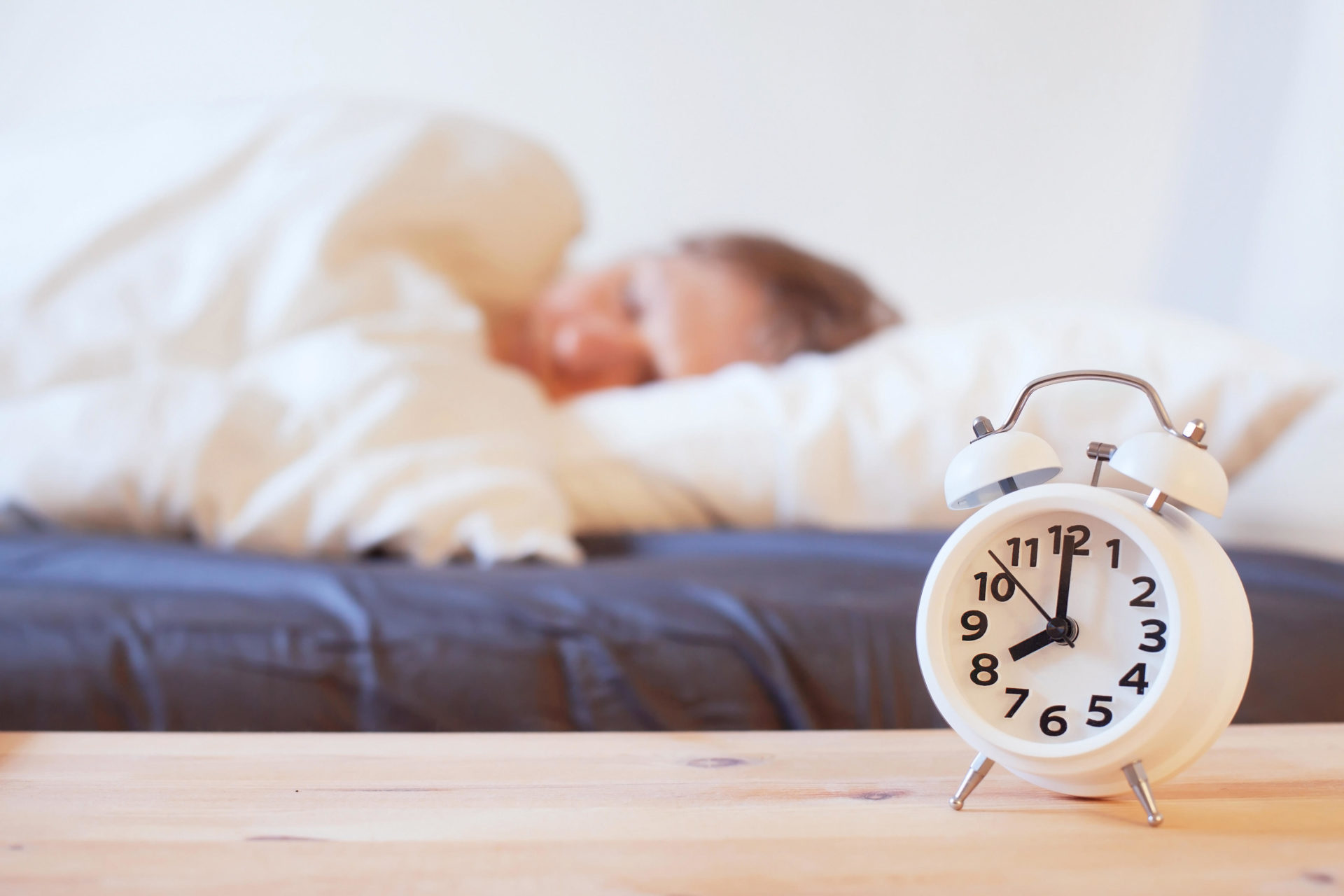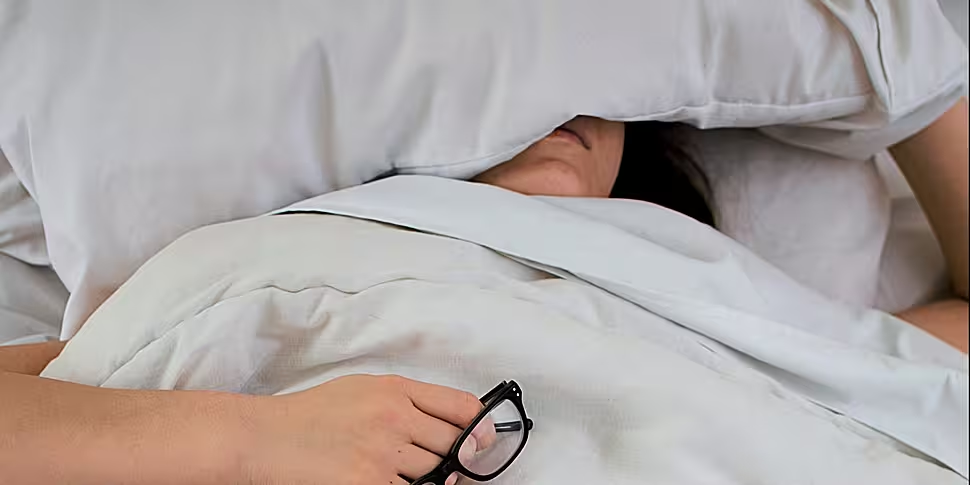What are the best ways to get the seven to eight hours of sleep you need to thrive in your daily life?
Experts believe that is the ideal amount of sleep you need to function well and stay healthy in the long-term.
For those who are struggling to get the right amount of shuteye, sleep expert Tom Coleman has some tips.
“The same systems that regulate stress, regulate sleep,” he told The Pat Kenny Show.
“So, we have to regulate the nervous system and calm things down.
“Get stress under control.”
Mr Coleman also said the light from your phone can be a huge distraction and recommends not using it just before bed.
“We have to be very mindful of technology [and] that we’re getting off the tech,” he said.
“That can be highly disruptive to sleep.”
 Person sleeping in bed next to an alarm clock. Image: Anna Berkut / Alamy Stock Photo
Person sleeping in bed next to an alarm clock. Image: Anna Berkut / Alamy Stock PhotoAnother factor that influences how well you sleep is exercise and Mr Coleman urged people to “be more active” if they can.
According to the US National Institutes of Health, an adult who exercises for 30 minutes a day, sleeps for 15 minutes longer than those who don’t.
There are also things you should avoid - such as alcohol.
“Alcohol really does disrupt sleep,” Mr Coleman said.
“It interferes with… how deep we go in sleep, so it’s not a good solution.
“It shuts off your prefrontal cortex and that’s one reason why it knocks the racing mind off [from] putting you to sleep.”
 A man in bed with a hangover. Photo by Andrea Piacquadio.
A man in bed with a hangover. Photo by Andrea Piacquadio.If there is one thing Mr Coleman wants bad sleepers not to do, it is to associate their bed as a place where they “suffer and struggle”.
“So, get up after a certain time period - 30 to 40 minutes,” he said.
“Get up and then when we feel tired, go back to sleep.
“That is the first frontline solution.
“At some point, if that’s not working - just give up and rest in bed.”
Finally, he addressed the question of sleep debt - whether having a lie in over the weekend makes up for bad sleep during the week.
“We should take opportunities if we have accumulated sleep debt,” he said.
“But one good night, is not going to make up for five bad nights - it’s as simple as that.”
Main image: A person asleep.









